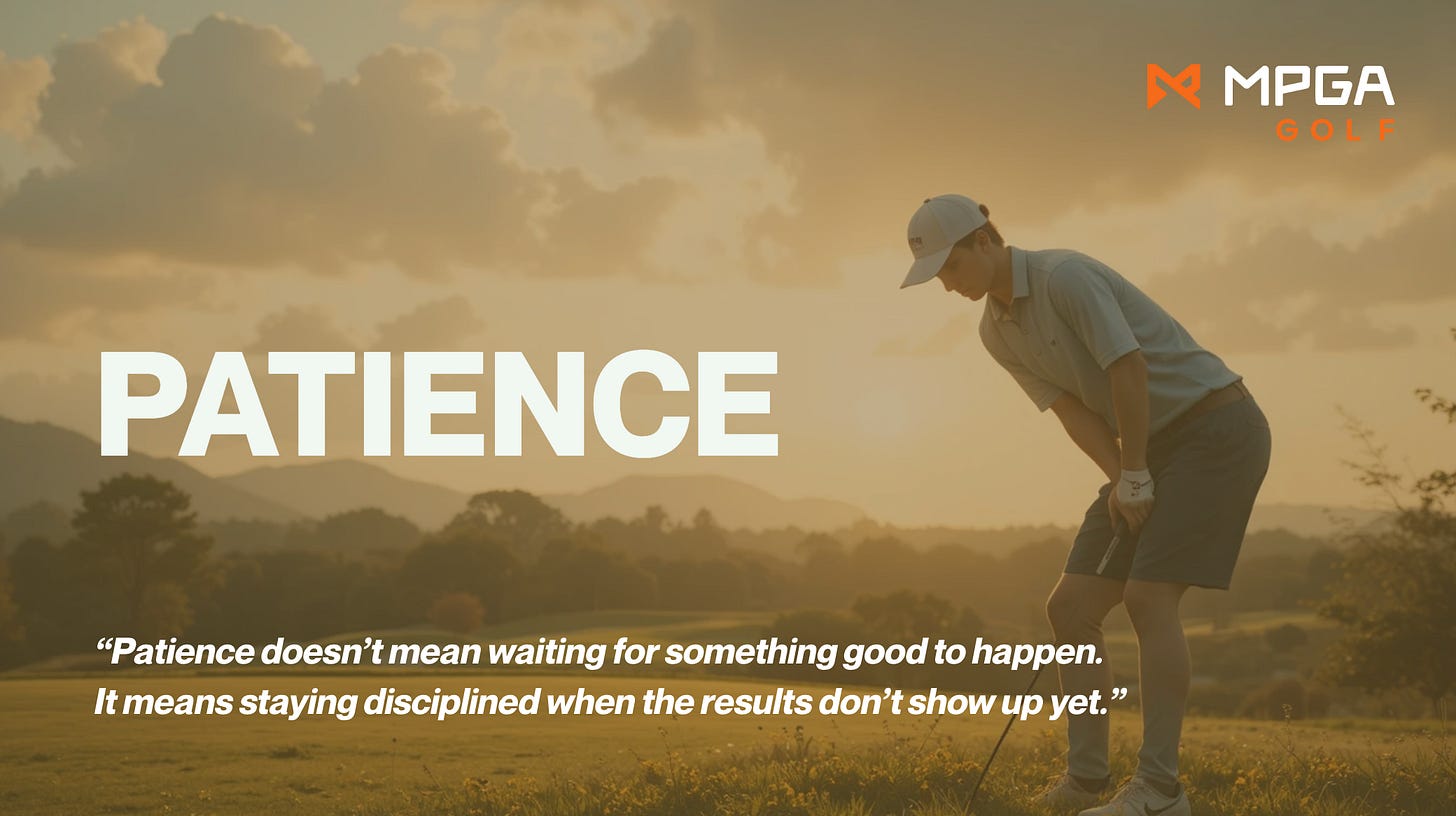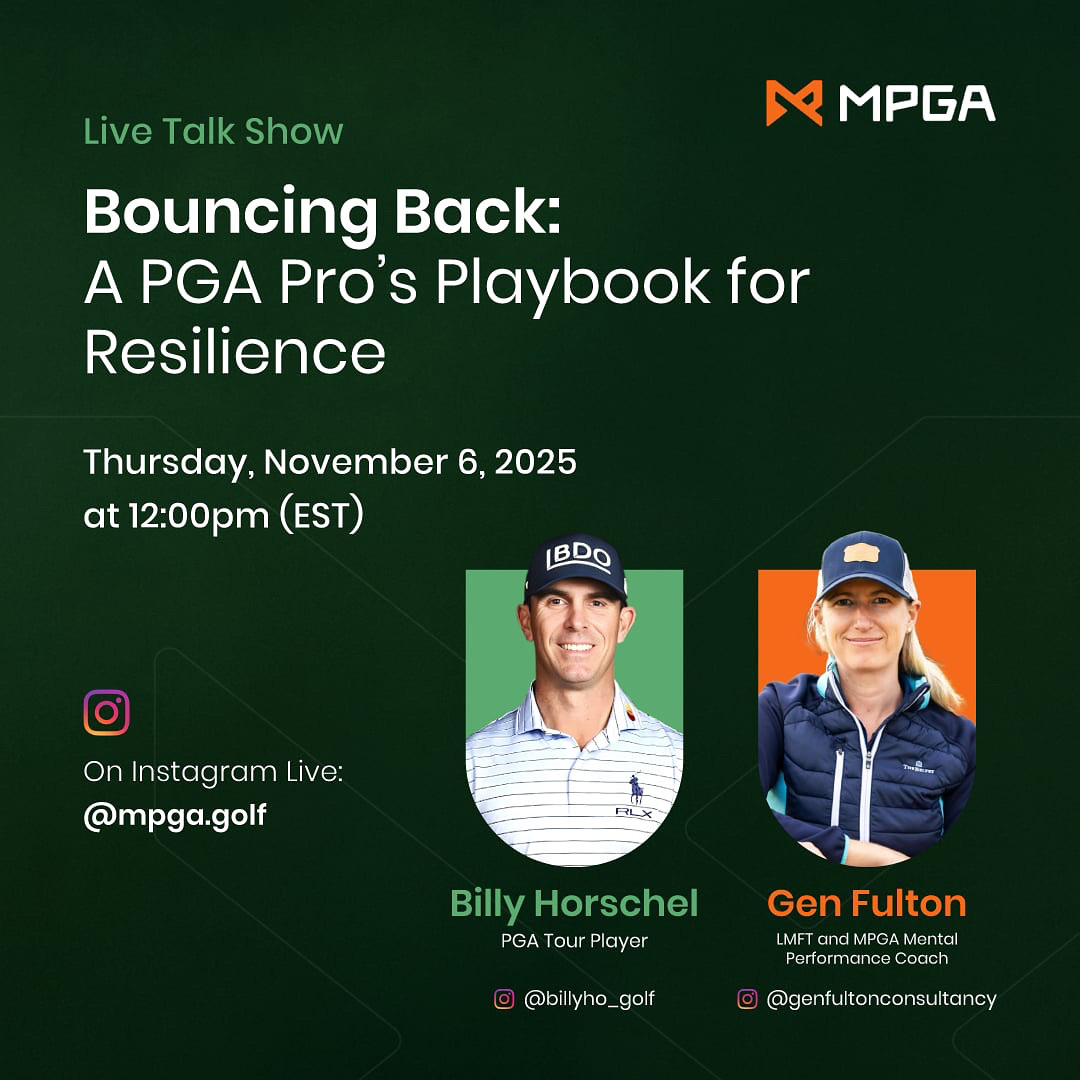Patience doesn’t mean waiting for something good to happen.
It means staying disciplined when the results don’t show up yet.
Patience is one of the hardest skills to master, both in golf and in life.
Elite players and high performers often want progress to match their effort. But real growth rarely happens that way.
In the data and in the stories, one truth keeps showing up:
the greatest breakthroughs are almost always preceded by struggle.
The Pattern of Growth
Research in performance psychology shows that skill development follows a nonlinear curve.
Improvement is fast early on.
Then comes the plateau, where effort feels high, and results seem stuck.
That plateau is where most people lose patience.
But here’s the catch: that “flat line” in progress is where your brain and body are quietly adapting. Neural pathways are reorganizing. Muscle memory is stabilizing. Confidence is being built through repetition and recovery, not just results.
In golf, this is the stretch when you feel like your swing is falling apart right before it finally clicks again.
In entrepreneurship, it’s the moment when the risk feels heavier than the reward, right before the next big opportunity appears.
The Psychology of the Breakdown
When things start to feel like they’re breaking down, most people misread the signal. They see failure. They question their direction. They back off.
But in elite performance terms, breakdown is not collapse, it’s recalibration.
Cognitive strain and emotional frustration are signs that your system is reorganizing. Carol Dweck’s research on growth mindset and Anders Ericsson’s studies on deliberate practice both highlight this moment as the threshold of learning. It’s when the brain is moving from conscious effort to unconscious skill.
You can’t shortcut this stage. You have to stay with it long enough for the adaptation to complete.
Patience in the Process
Patience isn’t passive. It’s active endurance.
It means:
You keep showing up when feedback is unclear.
You stay disciplined when confidence dips.
You focus on controllables, attitude, preparation, and attention, not just on the scoreboard or results.
A player who commits to patience learns to ride the emotional ups and downs without overreacting. They recognize that frustration is data, not disaster. They trust that the work will show, maybe not today… but eventually.
The Golf Parallel
Think about a player grinding on their putting stroke in the winter.
Day after day, they’re rolling putts, refining feel, tracking metrics, with no leaderboard in sight.
It’s repetitive. It’s quiet. It’s not glamorous.
But it’s exactly where confidence is built.
By the time competition season comes around, the patient player’s preparation shows up as calm under pressure. The impatient one is still chasing fixes.
For Those in the Unknown
If you’re in a season of uncertainty, whether in golf, business, or life remember: What feels like breakdown might be the moment right before things align.
Patience doesn’t mean waiting without movement.
It means staying the course when you can’t yet see the results.
Ask yourself:
Where am I feeling pressure to rush the outcome?
What if this frustration is actually a sign of growth?
What does patience look like in action for me this week?
Breakdowns test your mindset.
Breakthroughs reward your patience.
And just like the best rounds of golf, the real progress often comes after you stop forcing it and start trusting the work.
Your Mental Coach,
Dr. Mat
P.S. We have an exciting event tomorrow with PGA Tour Player, Billy Horschel and our MPGA Coach Gen Fulton, LMFT talking about “resilience.”
Follow and join us LIVE on IG tomorrow 11/6/2025 at 12:00pm (ET): @mpga.golf




